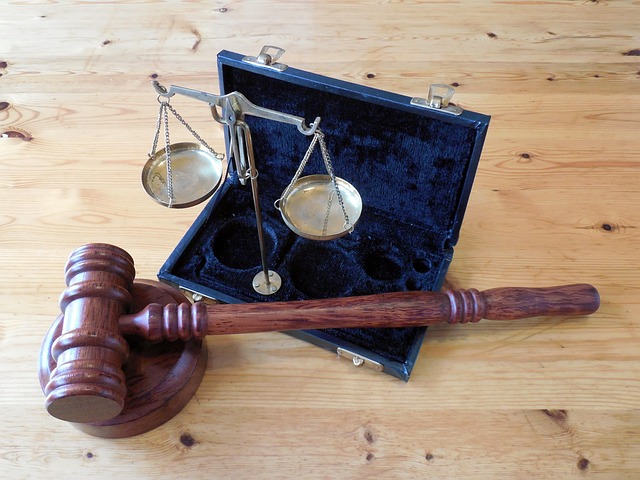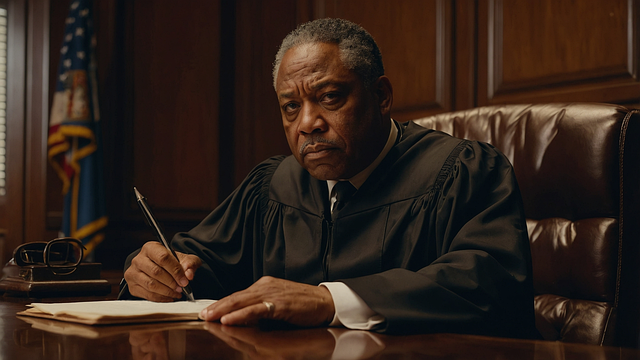Environmental Crime Trials require a intricate legal approach, balancing federal, state, and international laws. Appealing a criminal sentence decision involves mastering scientific evidence, regulatory nuances, and public opinion to secure justice for ecosystems and communities. Skilled lawyers navigate complexities, challenging sentence severity and setting precedents for future high-stakes cases. Key pieces of evidence and witness testimonies strengthen cases, while strategic appeals aim to mitigate penalties for corporations while upholding environmental protections.
“Environmental Crime Trials: Navigating Justice in a Greener World explores the intricate legal landscape surrounding environmental offenses. This comprehensive guide delves into the process of understanding, appealing, and winning criminal sentences for eco-crimes. From the moment a verdict is reached, strategic challenges and evidence play a pivotal role. We dissect the legal framework, uncover key witness testimonies, and analyze the impact of successful appeals. In light of growing environmental concerns, this article offers insights into future prospects, ensuring justice is served in an ever-changing ecological narrative.”
- Understanding Environmental Crime Trials
- The Legal Framework for Appeals
- Strategies for Challenging Sentences
- Key Evidence and Witness Testimonies
- Impact and Future Prospects of Appeals
Understanding Environmental Crime Trials

Environmental Crime Trials represent a unique intersection of environmental law and criminal justice. These trials involve prosecuting individuals or corporations accused of violating environmental regulations, leading to significant impacts on ecosystems and communities. Understanding this legal framework is crucial for both those involved in high-stakes cases and the broader philanthropic and political communities. The complexities often stem from the intricate web of federal, state, and international laws designed to protect our environment.
Appealing a Criminal Sentence Decision in these trials can be especially challenging due to the severe consequences of environmental harm. In such cases, a competent general criminal defense strategy becomes vital. Legal teams must navigate through scientific evidence, regulatory interpretations, and public sentiment to ensure justice is served while also considering the potential long-term implications for all stakeholders involved.
The Legal Framework for Appeals

The Legal Framework for Appeals in Environmental Crime Trials is a complex yet crucial process designed to ensure justice and fairness. When a defendant feels that their rights have been infringed upon or that the original sentence was unduly harsh, they have the legal option to appeal a criminal sentence decision. This involves submitting a formal request to a higher court, presenting arguments and evidence that the lower court made an error in law or fact.
In the context of environmental crimes, these appeals often revolve around understanding and interpreting environmental legislation and its application. The process is particularly significant for white collar and economic crimes where the stakes are high for both individuals and philanthropic and political communities. Skilled legal representation is vital to navigating this labyrinthine system, ensuring that clients receive a fair hearing and an outcome that reflects the nuances of their case.
Strategies for Challenging Sentences

In Environmental Crime Trials, challenging a criminal sentence decision can be complex but crucial for ensuring justice and deterring future misconduct. One effective strategy involves meticulous legal research to uncover any procedural errors or misinterpretations of evidence that may have influenced the original verdict. This includes scrutinizing the judge’s instructions to the jury, examining witness testimonies, and analyzing the application of environmental laws. For his clients, a seasoned attorney can navigate these intricacies, presenting compelling arguments based on both scientific evidence and legal precedents.
Another approach is to leverage the vast body of environmental law across the country, identifying relevant case histories that support the client’s position. By doing so, legal teams can challenge the severity or fairness of the sentence, arguing for a more proportional response that aligns with the nature of the crime. This strategy not only aims to reduce what may be considered excessive sentences but also sets a precedent for future high-stakes cases, potentially preventing similar environmental crimes by holding perpetrators accountable while promoting a more balanced approach to justice.
Key Evidence and Witness Testimonies

In Environmental Crime Trials, key evidence and witness testimonies play a pivotal role in shaping the outcome of cases, often serving as the backbone of investigations and prosecutions. During all stages of the investigative and enforcement process, compelling evidence such as scientific reports, environmental samples, and photographic documentation can irrefutably demonstrate the extent of ecological damage caused by criminal activities. These pieces of evidence are crucial for appealing a Criminal Sentence Decision, especially in white collar and economic crimes where complex financial schemes may obscure the true impact on the environment.
Witness testimonies from experts, community members, and former industry insiders further strengthen the case by providing firsthand accounts and contextual understanding. For his clients facing these charges, having detailed and credible evidence can significantly bolster their defense strategies. This includes exposing potential weaknesses in the prosecution’s case, challenging the interpretation of evidence, and offering alternative explanations that may mitigate guilt or reduce sentencing.
Impact and Future Prospects of Appeals

Environmental crime trials have far-reaching impacts, shaping corporate accountability and deterring future misconduct. When a company is found guilty, appealing a criminal sentence decision can be a strategic move to mitigate penalties and protect their respective business interests. However, navigating these appeals is complex, requiring a thorough understanding of environmental laws and legal precedents.
The success of such appeals often hinges on presenting compelling arguments that challenge the original verdict. An unprecedented track record of corporate responsibility or significant changes in industry practices post-indictment might be leveraged to avoid indictment or reduce penalties. As these trials gain traction, future prospects look promising for establishing stronger environmental protections and holding businesses accountable for their actions.
Environmental crime trials play a pivotal role in holding perpetrators accountable and fostering ecological justice. By understanding the legal framework, employing strategic challenges, and leveraging crucial evidence, successful appeals can be made to reverse harsh sentences. These efforts not only offer a chance for justice but also shape future environmental legislation and deter future crimes against nature. When appealing a criminal sentence decision, it’s essential to navigate the system with expertise, ensuring that the impact of these crimes is fully recognized and addressed.






